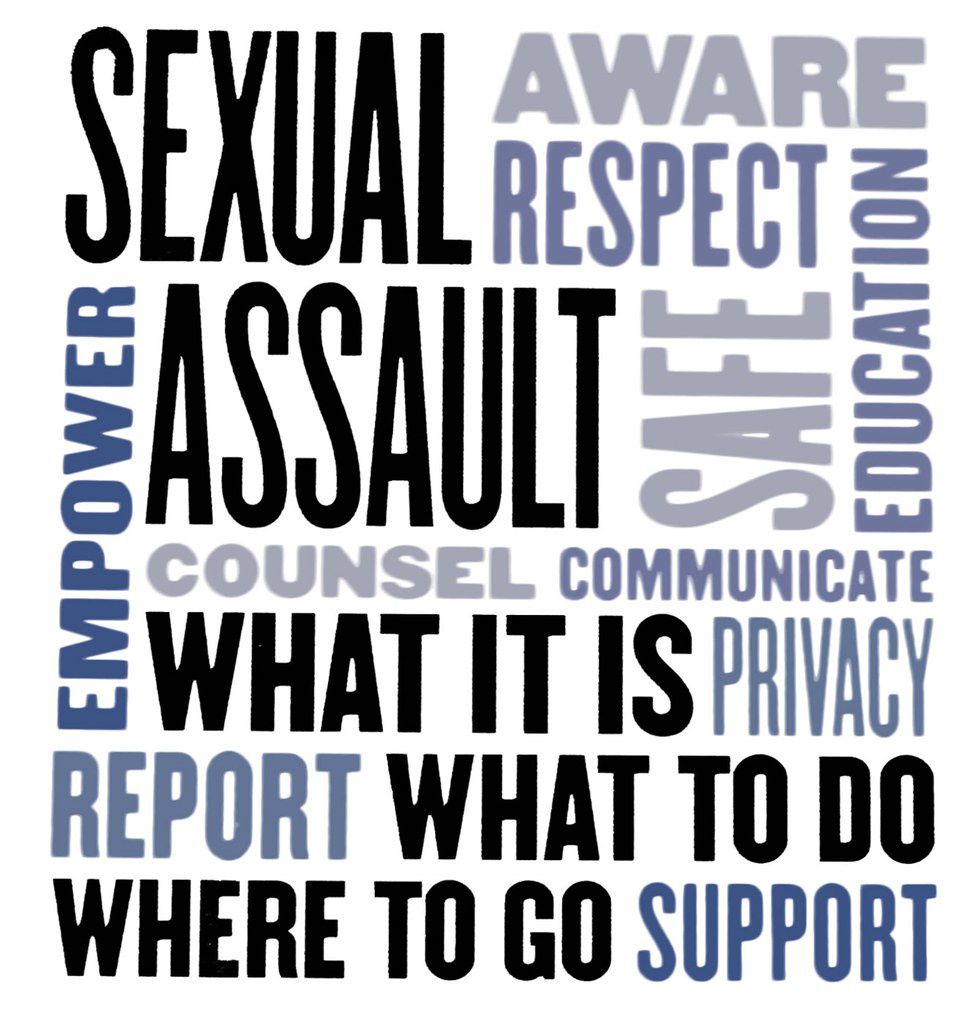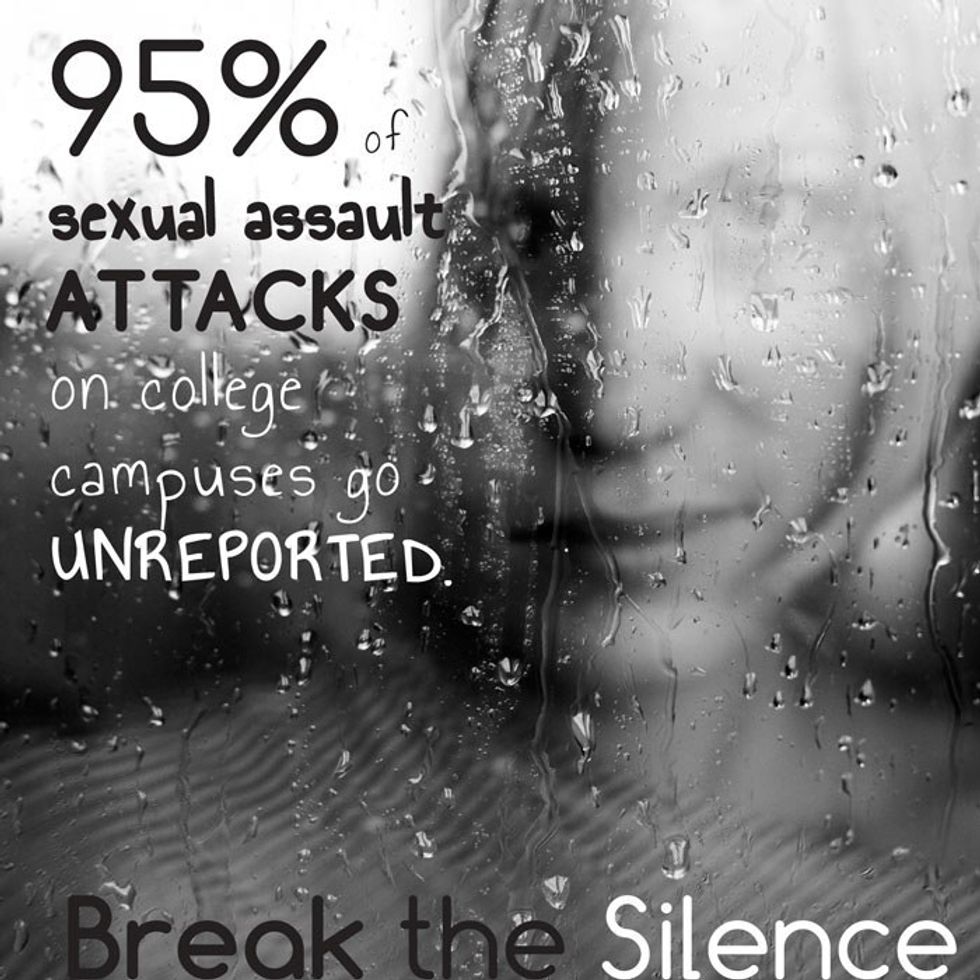It has come to my attention that we, as college students, need to address a very important issue. The issue? Sexual assault. Yes, we all know that it occurs and that it probably does not happen at UNG as frequently as it does at other colleges. However, it is imperative that we recognize what constitutes sexual assault, what may put you at higher risk of experiencing sexual assault, and how we can prevent or mitigate the detrimental effects.
To be honest, I never thought about sexual assault at UNG. It never crossed my mind, and I have never witnessed nor been exposed to sexual assault on campus, or throughout my 21 years on Earth, for that matter. Though with my current enrollment in Victim Issues (a criminal justice course) at UNG, the severity of this nationwide issue has come to my attention. Therefore, I would like to highlight some of the important factors that I have learned thus far.
First and foremost, sexual assault can be committed by anyone, and you can be a victim of sexual assault, no matter your age or gender. Although, our age group, 18 to 24-year-olds, are at the highest risk of being victims of sexual assault. Women are at a higher risk than males, and most offenders are males. Therefore, it is important for female college students to understand what is defined as sexual assault, and for males to recognize when their actions can be constituted as sexual assault. Female-on-female and male-on-male sexual assault also occurs, just not in the frequency of male-on-female assaults, but it is equally important.
Sexual assault does not have to be physical. Obviously, grabbing and touching an individual in erogenous zones either without consent or forcefully is a form of sexual assault. However, being coercive either through notes, emails, text messages, or verbally in a sexual manner can also be defined as sexual assault. This includes calling people with sexually overtone phrases and/or names. “Cat-calling” can also be a form of sexual assault. Sending unwanted sexually explicit,“dirty” pictures also applies.
The message? Be very mindful on how you treat others, whether to gain attention, seek pleasure, or be downright disrespectful, your actions can have quiet severe consequences.
More importantly, how can we reduce sexual assaults, not just on our campus, but throughout all colleges in the U.S.? First, there are some risk behaviors that may increase your vulnerability. Walking home alone at night, especially in urban and highly populated areas, may label you as an “easy target” for an offender. You would be safer walking with a friend, a group of friends, or driving. Drinking at parties or taking drugs can place you in an uncontrollable situation where a sexual assault may occur. Typically, our cognitive responses are reduced and slower when under the influence of drugs and/or alcohol which, again, can leave one open as an easy target or cause one to make unwise/unsafe decision that can lead to being sexually assaulted. It is best to avoid these types of situation. Now, I know that walking across campus at night at UNG is much safer than Georgia Tech in downtown Atlanta. However, you are always safer in numbers. Plus, this does not just apply to UNG student or being at UNG; this is for other college campuses and other situations as well.
Reporting sexual assault is another issue. Analysts and researchers have a hard time collecting accurate statistics for the rate of sexual assaults on college campuses. Why? Well, most instances go unreported. So, not just for knowing the amount of college sexual assaults but for your own safety, it is important to contact the authorities/campus police if you feel that you have been sexually assaulted.
Do not be ashamed or humiliated because it can happen to anyone at any time, and the authorities are there to help you. When taking action after an incident, you can greatly reduce the chance of experiencing another assault, either by the same offender or someone new. Remember, most victims know the offender in sexual assault cases. It can be an acquaintance, friend, an ex-boyfriend/girlfriend, or someone you just met. This does not account for all cases, but the mass majority.
So here is the kicker, we as college students need to be aware. We need to report cases when we see or experience them. Only then can we begin to tackle the issue. In no way am I insinuating that UNG has a problem; I am simply stating that in order to not have a problem we must remain vigilant and educated on the issue.
As many students have noticed, at least once a year, if not more, UNG sends out surveys pertaining to sexual assaults, asking students if they have experienced such instances and the action taken before, during, and after the incident. UNG carries out these procedures, to ensure that all students are as safe as possible, to create programs to keep students informed, and to allocate resources where needed. Therefore, it is paramount that we, as students, play a major role in identifying and preventing sexual assaults across campus and other colleges in order to keep students safe and provide a positive learning/growing experience.


























